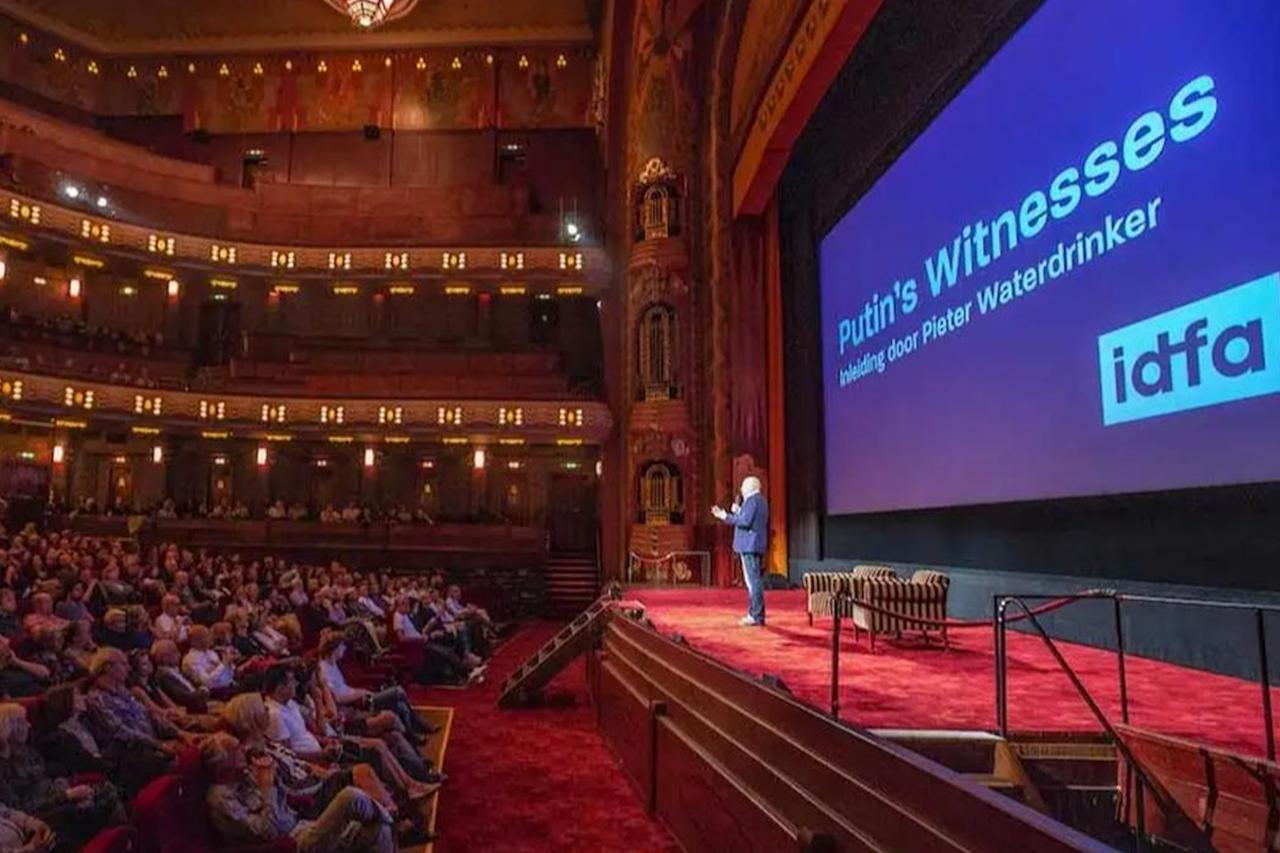
The International Documentary Film Festival Amsterdam (IDFA) has placed Gaza at the heart of its 38th edition, shaping its programming around a stance that aligns with what artistic director Isabel Arati Fernandez describes as the idea that art is “an existential necessity.”
It is a means to listen, see, imagine, and remain connected to empathy amid a world marked by wars and atrocities. The festival opened on Nov. 13 and runs until Nov. 23.
The festival opened with three short films on protest and revolution, including the Palestinian film "Intersecting Memory". The thematic section “Shaping History” features With Hasan in Gaza by director Kamal Aljafari, documenting the ongoing genocide in the Gaza Strip.
These selections reflect IDFA’s direction toward showcasing histories as they unfold and foregrounding narratives of liberation and resistance to colonial domination.
Turkish director Firat Yucel said his opening film "Happiness" could only be about the genocide in Gaza, explaining that “we cannot turn our faces away from it, ignore it, or be content with mere protest.”
In a move widely regarded as historic within the documentary community, IDFA announced it would not grant accreditation to representatives of three major Israeli institutions that receive government funding, including the Docaviv festival, the Copro co-production market, and Israel’s public broadcaster Kan. The decision aligns with the festival’s principles, prohibiting accreditation of institutions linked to severe human rights violations.
Fernandez explained earlier that the festival evaluates films and filmmakers individually, noting that similar decisions had been taken in previous years regarding other countries such as Iran and Russia.
The decision comes amid growing international calls to boycott cultural institutions implicated in supporting the war on Gaza, as part of a global campaign endorsed by thousands of artists and filmmakers.
Fernandez emphasized in her opening remarks that cinema becomes even more necessary “when the world appears out of tune,” stressing that art is not about offering easy answers, but about creating a space that allows us to imagine, feel, and grapple with the complexity of this moment. Her vision aligns with sections such as “Decolonization,” which explores identity, dignity, and long-denied rights under imperial domination, as well as with the choice of Portuguese filmmaker Susana de Sousa Dias as guest of honor.
The festival’s industry program—held from Nov. 15-19—brings together professionals from across the documentary field, at a moment when IDFA insists on positioning art as a space of resistance rather than neutrality.